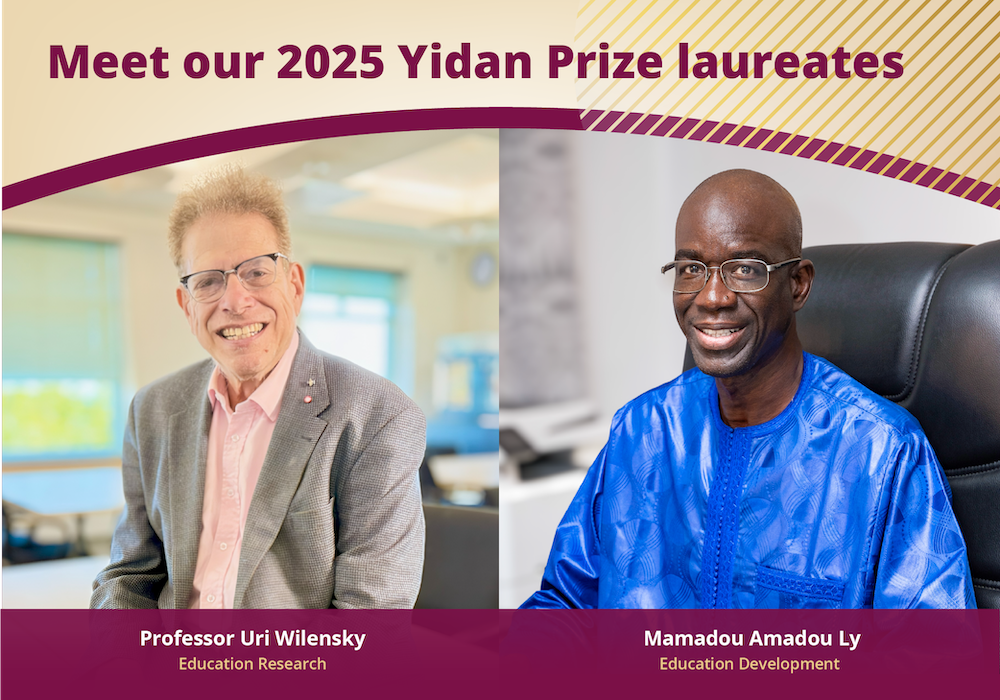English
Education holds the key to meeting every one of the UN’s 2030 Sustainable Development Goals (SDGs). We can create a better world for all when every learner is equipped with the knowledge and the skills needed to work together and tackle the greatest challenges of our time.
But the pressure to make progress is growing. We have passed the halfway mark between the adoption of the SDGs in 2015 and their deadline, yet only one in six countries is on track to achieve SDG4 – inclusive and equitable quality education for all, including to university level. On our current trajectory, more than 825 million youth will still not have the basic secondary-level skills – transferable, digital and job-specific abilities – needed to support lifelong learning and employment by 2030. Within higher education, enrolments more than doubled in 20 years from 100 million to over 235 million students in 2020. The total number of students in higher education is predicted to rise to nearly 380 million in the next decade. With an additional goal to increase the number of refugees in higher education from 3 per cent to 15 per cent in the same timescale, there is still plenty of work to be done to ensure equal access to affordable and quality education.
Educational research and development are at the forefront of redesigning how we teach our students, expanding access to quality education and driving social progress. The 2023 Yidan Prize laureates, Michelene Chi and Shai Reshef, are rethinking core aspects of how students learn and helping us take strides towards achieving SDG4. Through their innovative work, the two changemakers are providing solutions to help learners reach their full potential.
The Yidan Prize Foundation celebrates this vital work, recognising and amplifying the efforts of those working at the leading edge of change. “Our laureates are ensuring quality education for all through innovative approaches, transforming the way we think about learning,” says Koichiro Matsuura, chairman of the Yidan Prize Judging Committee and the former director-general of Unesco.
This chimes with an increased awareness of the need to change learning systems. In July, UN secretary-general António Guterres called for an “education revolution” to make today’s systems fit for tomorrow’s needs in an increasingly digitised world. He urged for more inclusive and flexible approaches to equip all students with creative and critical thinking, however they learn best. He expanded on this at the UN General Assembly in New York this past September, saying the solution to many children and young people receiving poor-quality or no education is to build true “learning societies,” anchored in quality teaching, from the earliest years through to adulthood.
Cultivating an inclusive global community of educators and learners
The Yidan Prize Foundation is building a global learning community that fosters collaboration between research and practice. Now in its seventh year, the Yidan Prize community continues to grow in both size and influence.
Chi, the 2023 Yidan Prize for Education Research laureate, is a regents professor and Dorothy Bray endowed professor of science and teaching at Arizona State University’s Mary Lou Fulton Teachers College. Her research bridges theories in psychology and education to unlock the potential for active learning at all levels.
Her widely adopted theory of cognitive engagement, called ICAP after its four behavioural modes (interactive, constructive, active and passive), is giving teachers a stronger understanding of how students learn. In turn, it enables them to develop engaging lesson plans and activities. It is designed to be applied globally, regardless of geography or teaching format.
“Education is a transformative force, and in order to inspire learners to achieve their greatest human potential we must find ways to encourage active and engaged learning,” says Chi, who plans to use the Yidan Prize project funds to develop new research teaching techniques for collaborative learning, develop ICAP training programmes for more teachers and offer workshops to college-level instructors, as well as to community colleges, to scale the reach of the ICAP framework.
“I am grateful for this recognition, which will expand access to the ICAP framework for educators and education systems globally,” she says.
Reshef, the 2023 Yidan Prize for Education Development laureate, is the president and founder of University of the People, the first non-profit US-accredited online university offering access to higher education regardless of geographical, financial or socio-economic status. With no tuition included, students pay only for their assessment at the end of each course. The university currently reaches more than 137,000 students – some 16,500 of whom are refugees – from more than 200 countries.
“Higher education should be a fundamental right for all. University of the People has built a model making higher education accessible, affordable and high quality, pioneering a scalable solution to empower the marginalised worldwide,” says Reshef, who plans to use the Yidan Prize project funds to continue University of the People’s exponential growth and support more students and populations, providing a comprehensive solution to issues of accessibility and affordability in higher education.
Edward Ma, secretary-general of the Yidan Prize Foundation, says: “Our 2023 laureates place learners at the heart of education. They are addressing critical questions with practical solutions. How do students learn? How can teachers foster critical and creative thinking in learners? How can we open doors to higher education that may otherwise be closed to many students?”
Looking to the future
With 2030 fast approaching, there is an urgent need for bold, inventive ideas in education if we are to meet SDG4. In helping learners to develop critical and creative thinking skills and fulfil their potential, or in broadening access to higher education, we require widely applicable and scalable solutions that meet the needs of today’s learners.
The Yidan Prize continues to create a better world through education, recognising the most innovative minds in research and practice, and scaling the most transformative and innovative ideas globally.
This article originally appeared on Financial Times 28 September 2023. No endorsement by Financial Times is implied.











